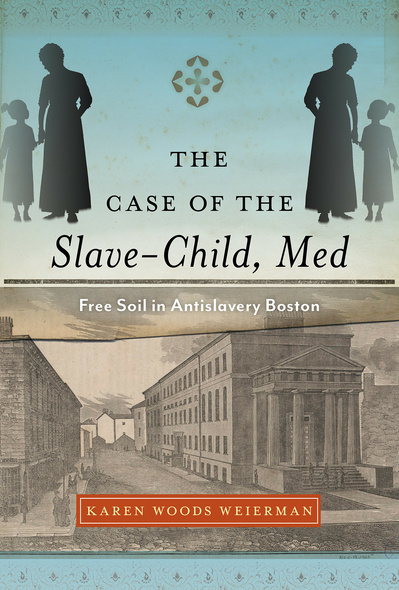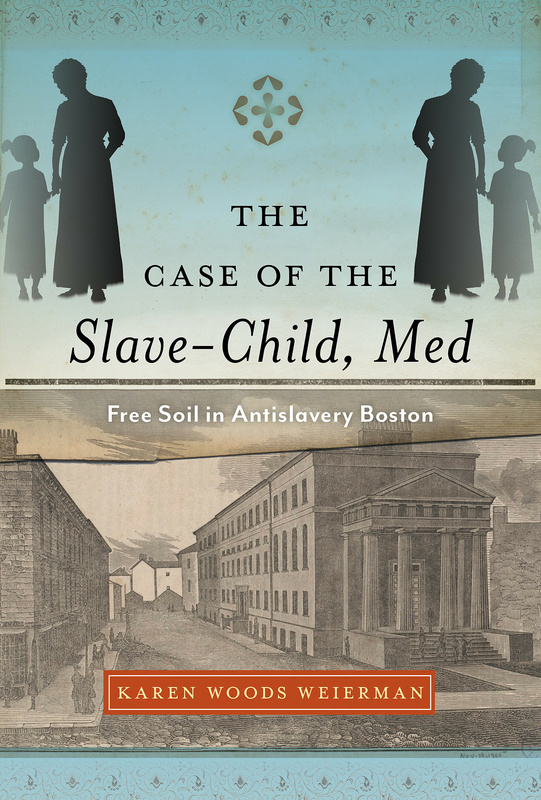Our shopping cart is currently down. To place an order, please contact our distributor, UTP Distribution, directly at utpbooks@utpress.utoronto.ca.

184 pages, 6 x 9
8 b&w illus., 1 map
Paperback
Release Date:15 Aug 2019
ISBN:9781625344762
Hardcover
Release Date:15 Aug 2019
ISBN:9781625344755
The Case of the Slave-Child, Med
Free Soil in Antislavery Boston
University of Massachusetts Press
In 1836, an enslaved six-year-old girl named Med was brought to Boston by a woman from New Orleans who claimed her as property. Learning of the girl's arrival in the city, the Boston Female Anti-Slavery Society (BFASS) waged a legal fight to secure her freedom and affirm the free soil of Massachusetts. While Chief Justice Lemuel Shaw ruled quite narrowly in the case that enslaved people brought to Massachusetts could not be held against their will, BFASS claimed a broad victory for the abolitionist cause, and Med was released to the care of a local institution. When she died two years later, celebration quickly turned to silence, and her story was soon forgotten. As a result, Commonwealth v. Aves is little known outside of legal scholarship. In this book, Karen Woods Weierman complicates Boston's identity as the birthplace of abolition and the cradle of liberty, and restores Med to her rightful place in antislavery history by situating her story in the context of other writings on slavery, childhood, and the law.
The story of Med is not widely known, if known at all. That alone makes this a valuable book. That it results in new readings of texts from this period, in particular Lydia Maria Child's novel A Romance of the Republic, is also exciting.'—Elise Lemire, author of Black Walden: Slavery and Its Aftermath in Concord, Massachusetts
'Weierman nicely traces abolitionists' efforts to create a triumphal narrative out of Med's story. She is also excellent in tracing concerns about other cases challenging the free soil doctrine, which shifted from court to court and in different geographical contexts.'—Alice Hearst, author of Children and the Politics of Cultural Belonging
'[T]he author unsnarls the complicated laws regarding the status of slaves relocating to free states while demonstrating how the abolitionists ignored Med as a symbol of freedom, since her death did not fit their convenient narrative . . . this is an important book—its coverage of well-meaning reformers' moral posturing and hypocrisy resonates then and now.'—CHOICE
'It is a compelling story that has many contemporary resonances, particularly for those involved in prosecuting child trafficking cases, which similarly raise awkward questions about consent and the choices facing young people caught up in these cases . . . The Case of the Slave-Child, Med is a timely study that forces us to rethink the boundaries of slavery and freedom in nineteenth-century America and to reconsider what it meant to be the emancipated child of an enslaved mother, with all the ambiguities that implied.'—Slavery and Abolition
'Med's important story adds to the history of childhood and the documentation of enslavement . . . the study emerges as an important cornerstone for further investigations in abolitionist history.'—H-Net Reviews
KAREN WOODS WEIERMAN is professor of English at Worcester State University and author of One Nation, One Blood: Interracial Marriage in American Fiction, Scandal, and Law, 1820–1870.




